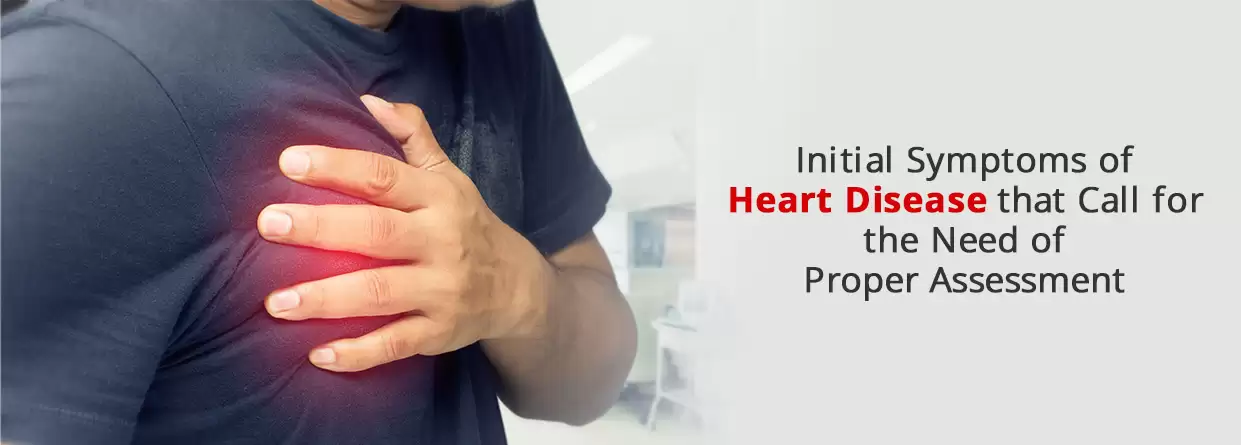
 Emergency No: 08062136599
Emergency No: 08062136599
Cardiology | by Dr. Shuvo Dutta | Published on 26/08/2022
We often experience symptoms that call for the need for proper medical assessment but tend to overlook them. It is important to understand that these are not just symptoms but our body's way of communicating with us and letting us know that something is wrong. There are several symptoms that may be an early indication of heart disease and need to be assessed properly. In this blog, we are going to highlight some such initial symptoms of heart disease with the help of experts in the field.
Angina - Angina refers to chest pain and it is the classic symptom of many heart diseases including heart attack. Although the reason behind your chest pain might not always be cardiological, it is better to go for a proper evaluation and assessment, in order to determine the underlying cause. If your chest pain is related to a heart problem you are quite likely to experience tightness or pressure in your chest. It may even feel as if some heavy object has been placed on it.
Malaise - It refers to the general feeling of uneasiness, discomfort and illness, which may be triggered by a variety of health issues, including those related to your heart. If that is the case you are quite likely to experience other symptoms along with the fever, such as chest pain, breathlessness and lightheadedness.
Stomach issues - If you believe that your stomach problems are always a result of your eating habits, you need to think twice. Stomach problems like indigestion are very closely related to heart diseases. Surprised? Well, it is true and sometimes pain caused by either of the two is often mistaken for the other one. One simple example could be heartburn, which is often mistaken for a heart attack.
Excessive sweating - It is quite normal to sweat when you are working out or indulging in some rigorous physical activity, but they can be times when you sweat without any possible reason, even when you are sleeping at night. These cold sweats could be a sign of heart disease and if you have been experiencing them, it is better to consult a Doctor immediately. You can contact the experts from the best cardiac hospital in Kolkata.
Leg pain - Leg pain is often associated with Orthopaedic issues but sometimes the reason could be cardiological as well. This could be a sign of peripheral arterial disease, a condition in which the peripheral arteries of the person become locked, thereby restricting the flow of blood to the legs. The problem is potentially serious and calls for the need of immediate medical intervention.
Arm pain - Did you know that chest pain caused by a heart attack can radiate toward the left arm? Not only this, but it can also spread to the left side of the neck, shoulder, and jaw. Although there can be other underlying reasons as well, it is better to get yourself assessed to rule out any possible complications.
Swollen ankles - Have you been noticing swelling in your ankles lately? It could be due to the fact that your heart is not able to perform its function properly. This is a sign of the build-up of unwanted fluids in the lower extremities which has been linked with peripheral artery disease as well as heart failure.
Extreme fatigue - You may feel tired due to many different reasons but, not all of them can be overlooked. As per the best cardiologist in Kolkata, extreme fatigue could be a sign that something is wrong with your heart. This is because your blood is not circulating as it should and as a result, different parts of your body are not getting enough nutrients and oxygen.
It is important to watch out for such symptoms and consult a Doctor if you can relate to any of these. Although these do not necessarily mean that you have a serious heart problem, it is always better to be on the safer side.